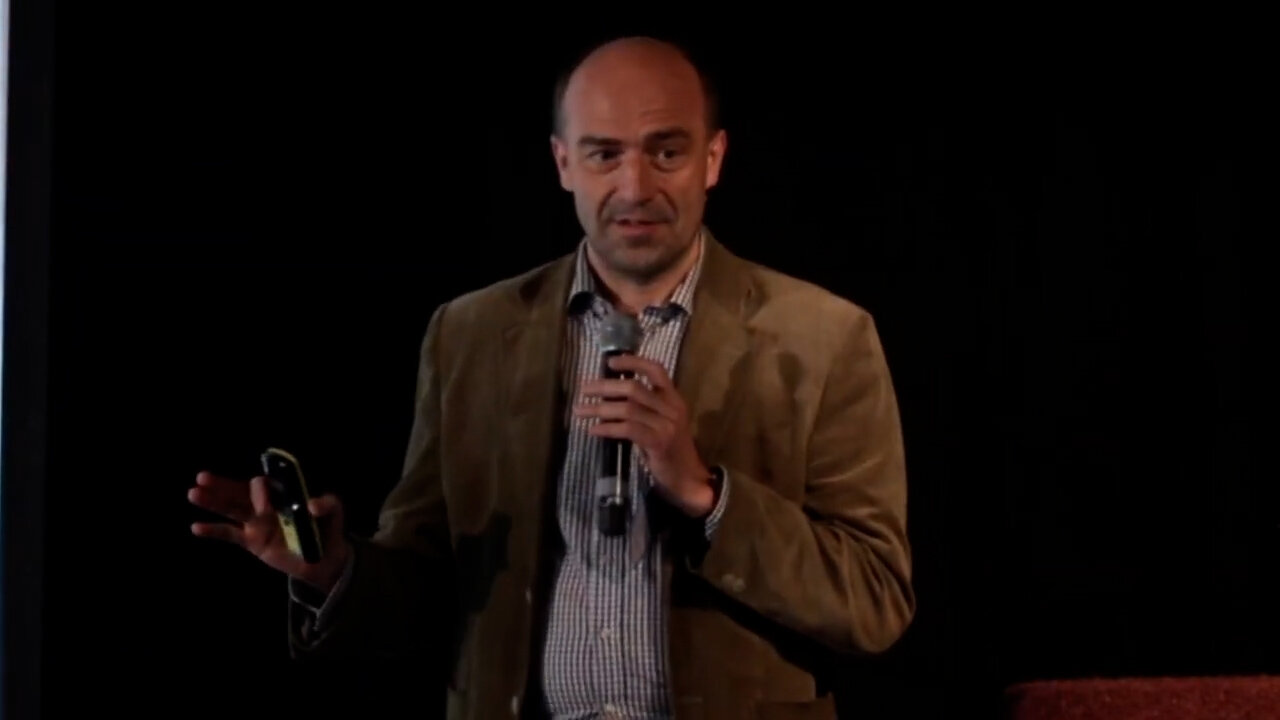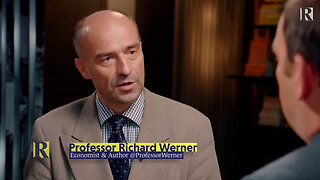Premium Only Content

The Case for Abundance - Failed Promises of Economics & the Path to a Successful Economy
Prof. Richard Werner's full presentation on The Case for Abundance at the Northern Light Convention in Malmo, Sweden, organized by Scandinavian Freedom Events.
Subscribe to Prof. Richard Werner's substack: https://rwerner.substack.com
Richard Werner speaks of Keynes' prediction where the planet would be so prosperous, people would no longer have to work and society could exist with 'voluntary' work of 1-2 days a week. But... we are still working! Where did Keynes go wrong? What is the real reason behind the 1970s stagflation?
Additionally, Prof. Werner walks through the three competing theories of banking: the Financial Intermediation Theory, the Fractional Reserve Theory, and the Credit Creation Theory before revealing the true role of banks in society and their power hidden by central banks and mainstream economics. Banks are responsible for c. 97% of total new money that is created; this little known fact has a serious impact on the economy.
Why do economists misunderstand inflation? Do interest rates actually work? How did China create the most successful economy ever? Richard Werner answers these questions, and more, as he talks through the Washington Consensus, the damaging policies of the IMF & World Bank, and the real driver of economic growth & inflation.
Richard explores the most important central bank policy tool in history, direct bank credit control (window guidance). Using the East Asian Economic Miracle as an example, he highlights the power of window guidance to bring about double digit economic growth without inflation and to raise economies out of recession.
Contrary to the direct policy tool, a decentralised banking system can provide an alternative solution where the banks themselves naturally create a healthy, thriving economy without direction from the central bank. A banking system consisting of thousands of community banks that only lend locally to small businesses is robust, productive in nature, and does not lead to boom/bust cycles.
-
 27:28
27:28
Richard Werner Economics
1 month agoA Whistle-Stop Tour of Modern Banking - Renegade Inc & Richard Werner (Part 2)
186 -
 LIVE
LIVE
LFA TV
14 hours agoTHE FIGHT IN ONLY BEGINNING! | LIVE FROM AMERICA 11.21.24 11am EST
5,770 watching -
 1:18:10
1:18:10
Graham Allen
4 hours agoPutin Vows Peace With Trump But WAR Under Biden!! + 400,000 Kids Are MISSING?!
74.4K163 -
 2:11:07
2:11:07
Matt Kohrs
12 hours agoMSTR Squeezes Higher, Bitcoin To $100k & Nvidia Post Earnings || The MK Show
30.3K1 -
 42:07
42:07
BonginoReport
6 hours agoNikki Haley's Hatred of Tulsi Gabbard Just Made Me a Bigger Fan (Ep.90) - 11/21/24
78.2K198 -
 28:41
28:41
Professor Nez
11 hours ago🚨BLOOD on their HANDS! The Man Biden & Kamala Flew In Finally Faces JUSTICE for Laken Riley
37.6K26 -
 1:06:27
1:06:27
2 MIKES LIVE
3 hours agoThe Mike Schwartz Show 11-21-2024
37.1K -
 15:07
15:07
PMG
12 hours ago $0.69 earned"President Trump's Cabinet is Amazing!"
44.9K -
 LIVE
LIVE
Vigilant News Network
16 hours agoHeavily-Vaxxed County Faces Grim Reality | The Daily Dose
979 watching -
 1:22:22
1:22:22
Game On!
16 hours ago $11.32 earnedRussell Wilson MVP? TNF Steelers vs Browns Game of the Year!
73.7K